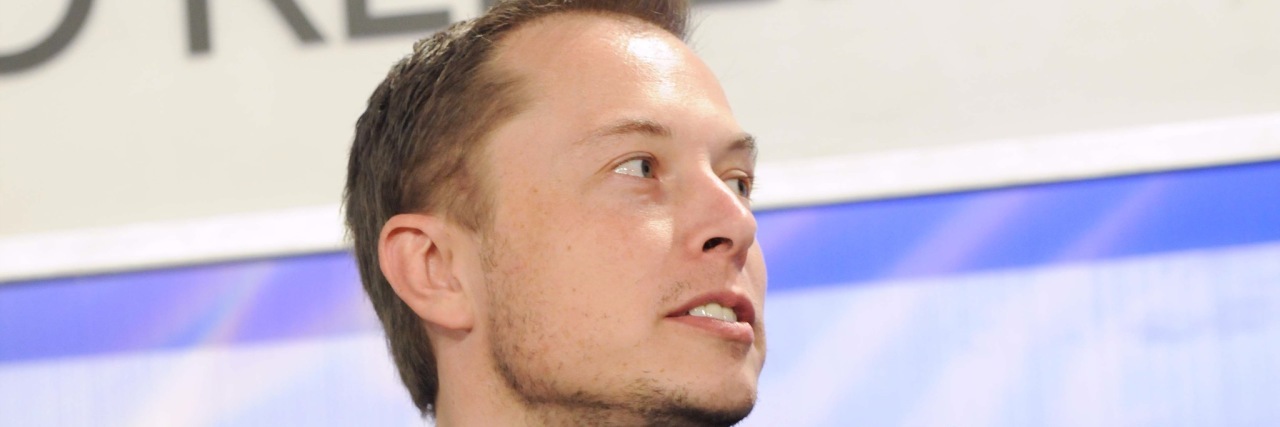Reports that Elon Musk is “bipolar” are circulating this week after the billionaire and tech entrepreneur answered a Twitter user’s question Sunday night following some honest tweets about his mental state.
• What is Bipolar disorder?
Yeah
— Elon Musk (@elonmusk) July 30, 2017
This simple, one-worded tweet led to headlines like this:

Let’s back up a second.
Musk is a self-made billionaire and, according to Forbes, is the 15th richest person in tech. Fair to say, he works a lot and in an industry known for long work hours and stress. So when a Twitter user commented on the “amazing life” he portrays on Instagram, Musk responded, “The reality is great highs, terrible lows and unrelenting stress. Don’t think people want to hear about the last two.”
The reality is great highs, terrible lows and unrelenting stress. Don’t think people want to hear about the last two.
— Elon Musk (@elonmusk) July 30, 2017
That’s when another Twitter user asked Musk if he was bipolar. Musk replied, “Yeah.”
https://twitter.com/iFahadUddin/status/891711269744541696
Yeah
— Elon Musk (@elonmusk) July 30, 2017
He then clarified, “Maybe not medically tho. Dunno. Bad feelings correlate to bad events, so maybe real problem is getting carried away in what I sign up for.”
Maybe not medically tho. Dunno. Bad feelings correlate to bad events, so maybe real problem is getting carried away in what I sign up for.
— Elon Musk (@elonmusk) July 30, 2017
Now, after this exchange, publications like The Sun and The Daily Mail are reporting that the SpaceX CEO and Telsa founder is bipolar. The Daily Mail went so far as to say, “Tesla founder Elon Musk said he suffers from bipolar disorder on Twitter.”
It’s definitely possible Musk lives with a mental illness, and there would be nothing wrong with that. In fact, lots of successful people live with bipolar disorder, both in the fame-world and also in the everyday.
When we think of these ultra-busy tech entrepreneurs, we often see them as invincible machines who can get twice as much done in a day than the average person. But even tech billionaires aren’t immune to struggle or mental health conditions. In a study conducted in 2015, out of 242 entrepreneurs surveyed, 49 percent reported having a mental health condition, with depression being the most common. In light of this, it’s admirable Musk admitted he was stressed in such a public way. Whether he has bipolar disorder or not, he showed a little bit of humanity by acknowledging the highs and lows of his life, and we commend him for that.
But having a stressful, high-stakes career that involves periods of ups and down isn’t the same thing as having bipolar disorder. Bipolar disorder isn’t an adjective you get to use to explain your stressful life (and it’s definitely not a word you should use to describe the weather). Bipolar disorder is marked by periods of depression and mania, and although stress or life circumstances can definitley have an impact, these shifts often move independently of whatever’s going on in your life. Using Musk’s comments to “out” him as bipolar, when his experience is unclear, is irresponsible and perpetuates the idea that anyone who’s life is a “roller coaster” has bipolar — when the truth is much more complex than that.
A larger point through, is that people in these high stakes positions need to be taking care of their mental health and not let the whirlwind of entrepreneurship take them away. Because you can’t do great, innovative things if you’re not here, and more people like Elon Musk should feel free to talk about their mental health, mental illness or not.
Image via Creative Commons/JD Lasica from Pleasanton, CA, US

